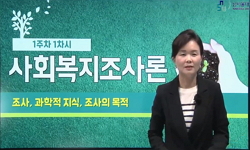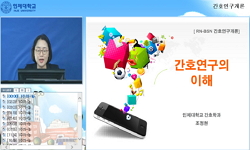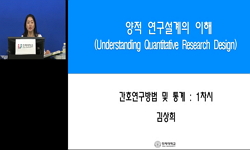This study aimed to examine the detailed and in-depth reality of small local newspapers and journalists within the dominant structure of the giant central newspaper market represented by Chosun-Ilbo, JoongAng-Ilbo, and Dong-A-Ilbo. Through the voices ...
http://chineseinput.net/에서 pinyin(병음)방식으로 중국어를 변환할 수 있습니다.
변환된 중국어를 복사하여 사용하시면 됩니다.
- 中文 을 입력하시려면 zhongwen을 입력하시고 space를누르시면됩니다.
- 北京 을 입력하시려면 beijing을 입력하시고 space를 누르시면 됩니다.
지역신문 기자들의 직업정체성 연구 : 인천지역 10개 신문의 전·현직 기자를 중심으로 = A Study on the Occupational Identity of Local Journalists: Focused on former and current journalists from 10 newspapers of Incheon, Korea
한글로보기https://www.riss.kr/link?id=T16828151
- 저자
-
발행사항
서울 : 고려대학교 미디어대학원, 2023
-
학위논문사항
학위논문(석사) -- 고려대학교 미디어대학원 , 저널리즘전공 , 2023. 8
-
발행연도
2023
-
작성언어
한국어
- 주제어
-
발행국(도시)
서울
-
형태사항
73 p ; 26 cm
-
일반주기명
지도교수: 박재영
-
UCI식별코드
I804:11009-000000276360
- DOI식별코드
- 소장기관
-
0
상세조회 -
0
다운로드
부가정보
다국어 초록 (Multilingual Abstract)
The theoretical background for the research involved studying the history and previous research on Incheon local newspapers to identify the issues and current situation. Furthermore, previous research and literature on journalists' professional identities and journalistic professionalism were reviewed, focusing on press freedom, social responsibility of the media, journalists' job satisfaction, and morale. Through the theoretical background and previous research, it was possible to identify the current situation where Incheon is a city with mixed information due to the presence of residents from various parts of the country, but local media and journalists are unable to fulfill their essential roles due to the difficulties faced by media companies and journalists being pushed into fatigue. Additionally, previous research indicating the professional instability of Korean journalists revealed the limitations of generalizing Incheon local newspaper journalists. Therefore, in-depth interviews and email questionnaires were conducted with 18 current and former journalists from 10 Incheon local newspapers to capture the detailed voices of journalists experiencing crises and uncertainties. The interview guide was developed based on a semi-structured format, consisting of three structured questions on press freedom, social responsibility of the media, and morale. It was supplemented with unstructured questions on nepotism, advertising, organizational culture, journalistic professionalism, code of ethics, economic rewards, education, and psychological fatigue. Following a semi-structured interview guide, a total of eight questions were used to examine the professional identities of Incheon local newspaper journalists, categorize them, and derive answers to the research questions.
Based on the question and answer data, the study analyzed the professional identity of journalists in relation to press freedom, social responsibility of the media, and journalists' morale. Through an attempt at categorization, the study identified five types of professional identities among Incheon local newspaper journalists who are still imbued with the spirit of journalism. These types include the ‘watchdog type’ who actively exercises journalistic oversight, the ‘network maintenance type’ who focuses on maintaining relationships within the local community for their journalistic activities, the ‘salesperson type’ who leverages excellent writing skills to increase advertising revenue and overcome crises, the ‘job seeker type’ who sees journalism as a stepping stone for future career moves, and the ‘livelihood maintenance type’ who solely concentrates on making a living through journalism. Additionally, in examining the distribution of these types, it was discovered that both the ‘job seeker type’ and the ‘watchdog type’ are not uncommon, indicating the need for swift improvement in working conditions to support the revitalization of Incheon local newspapers and the normalization of journalistic professionalism. While it may not provide a definitive guarantee, this finding suggests that immediate measures for a solid foundation are crucial.
Since this study was conducted based on qualitative research methodology, it was not possible to confirm the objective professional identities of Incheon local journalists as perceived by the entire Incheon media through quantitative methods. In future research, a quantitative research methodology can be applied to examine the differences in activity patterns of journalists based on years of experience, age, gender, membership/non-membership in the Journalists Association of Korea, Incheon-based journalists from central media organizations, internet media, advertising professionals, and other variables, thereby obtaining a more generalized understanding of the professional identities of Incheon local newspaper journalists. Additionally, studying the professional identities of media representatives from companies, organizations, local governments, and grassroots municipalities would help discover a more accurate image of Incheon media and contribute to the development of local journalism. Furthermore, although this study suggests the possibility of achieving media normalization based on improved economic conditions and environment leading to an uplift in the morale of Incheon local journalists, it is limited by the lack of discussion on systematic methods for improving economic conditions.
This study aimed to examine the detailed and in-depth reality of small local newspapers and journalists within the dominant structure of the giant central newspaper market represented by Chosun-Ilbo, JoongAng-Ilbo, and Dong-A-Ilbo. Through the voices of field journalists, the study explored the professional crisis faced by regional journalism and journalists. It sought to understand how journalists form their professional identities to survive in times of crisis and to identify and confirm the characteristics of different types based on their professional identities. The research methodology employed qualitative research through in-depth interviews, which fostered interactive and empathetic relationships with journalists to capture their everyday experiences, emotions, attitudes, and thoughts. The researcher, who is a media representative of Incheon Housing and City Development Corporation, selected interviewees in a balanced manner using the journalist pool from a relationship of over 3 years and 6 months, aiming to examine the actual professional identities of journalists from as objective a standpoint as possible and attempt categorization.
The theoretical background for the research involved studying the history and previous research on Incheon local newspapers to identify the issues and current situation. Furthermore, previous research and literature on journalists' professional identities and journalistic professionalism were reviewed, focusing on press freedom, social responsibility of the media, journalists' job satisfaction, and morale. Through the theoretical background and previous research, it was possible to identify the current situation where Incheon is a city with mixed information due to the presence of residents from various parts of the country, but local media and journalists are unable to fulfill their essential roles due to the difficulties faced by media companies and journalists being pushed into fatigue. Additionally, previous research indicating the professional instability of Korean journalists revealed the limitations of generalizing Incheon local newspaper journalists. Therefore, in-depth interviews and email questionnaires were conducted with 18 current and former journalists from 10 Incheon local newspapers to capture the detailed voices of journalists experiencing crises and uncertainties. The interview guide was developed based on a semi-structured format, consisting of three structured questions on press freedom, social responsibility of the media, and morale. It was supplemented with unstructured questions on nepotism, advertising, organizational culture, journalistic professionalism, code of ethics, economic rewards, education, and psychological fatigue. Following a semi-structured interview guide, a total of eight questions were used to examine the professional identities of Incheon local newspaper journalists, categorize them, and derive answers to the research questions.
Based on the question and answer data, the study analyzed the professional identity of journalists in relation to press freedom, social responsibility of the media, and journalists' morale. Through an attempt at categorization, the study identified five types of professional identities among Incheon local newspaper journalists who are still imbued with the spirit of journalism. These types include the ‘watchdog type’ who actively exercises journalistic oversight, the ‘network maintenance type’ who focuses on maintaining relationships within the local community for their journalistic activities, the ‘salesperson type’ who leverages excellent writing skills to increase advertising revenue and overcome crises, the ‘job seeker type’ who sees journalism as a stepping stone for future career moves, and the ‘livelihood maintenance type’ who solely concentrates on making a living through journalism. Additionally, in examining the distribution of these types, it was discovered that both the ‘job seeker type’ and the ‘watchdog type’ are not uncommon, indicating the need for swift improvement in working conditions to support the revitalization of Incheon local newspapers and the normalization of journalistic professionalism. While it may not provide a definitive guarantee, this finding suggests that immediate measures for a solid foundation are crucial.
Since this study was conducted based on qualitative research methodology, it was not possible to confirm the objective professional identities of Incheon local journalists as perceived by the entire Incheon media through quantitative methods. In future research, a quantitative research methodology can be applied to examine the differences in activity patterns of journalists based on years of experience, age, gender, membership/non-membership in the Journalists Association of Korea, Incheon-based journalists from central media organizations, internet media, advertising professionals, and other variables, thereby obtaining a more generalized understanding of the professional identities of Incheon local newspaper journalists. Additionally, studying the professional identities of media representatives from companies, organizations, local governments, and grassroots municipalities would help discover a more accurate image of Incheon media and contribute to the development of local journalism. Furthermore, although this study suggests the possibility of achieving media normalization based on improved economic conditions and environment leading to an uplift in the morale of Incheon local journalists, it is limited by the lack of discussion on systematic methods for improving economic conditions.
국문 초록 (Abstract)
연구를 위한 이론적 배경으로 인천시 지역신문의 역사와 선행연구 학습을 통해 문제점과 현황 등을 살펴보았고, 기자의 직업정체성과 기자 전문직주의에 대한 선행연구 학습을 위해 취재보도의 자유, 언론의 사회적 책임, 기자의 직업만족과 사기 측면에서 관련 연구와 문헌을 살펴보았다. 이론적 배경과 선행연구를 통해 인천시가 전국 각지에서 모인 지역 구성원들로 인해 정보가 혼재하는 도시이며, 지역언론 또한 지역 통합의 역할을 언론사 경영의 어려움 등의 문제로 본연의 역할에 충실하지 못해 기자들 또한 탈진으로 내몰리고 있는 실정을 확인할 수 있었다. 아울러, 한국 기자들의 직업적 불안정성을 보여주는 선행연구들로 인천 지역신문 기자들을 일반화하기에는 기자들이 겪고 있는 위기와 불안함의 세밀한 목소리를 담은 심층면담 등 질적연구가 부족한 한계가 있기에 인천 지역신문 10개 매체, 18명의 전ㆍ현직 기자들과 심층면담 및 E-mail 문답을 진행하였다. 취재보도의 자유, 언론의 사회적 책임, 사기(士氣) 등 3가지 구조화된 질문 목록에 연고주의, 광고, 조직문화, 기자전문직주의(journalistic professionalism), 윤리강령, 경제적 처우, 교육, 심리적 탈진 등 비구조화된 면담 질문을 더한 반(半)구조화 면담가이드에 따른 총 8가지 질문을 바탕으로 진행한 면담을 통해 인천 지역신문 기자들의 직업정체성을 확인하고 유형화를 통하여 연구문제의 답을 도출하였다.
문답 데이터를 바탕으로 취재보도의 자유, 언론의 사회적 책임, 기자의 사기와 관련한 직업적 정체성을 분석하였고, 유형화 시도를 통해, 아직 기자정신이 살아있는 ‘감시견(watchdog)형’의 기자, 원만하게 인맥을 통해 지역 내에서 기자활동을 원하는 ‘인맥유지형’기자, 뛰어난 글쓰기 능력을 통해 광고실적을 높이고 위기를 넘고자 하는 ‘영업사원형’기자, 이직만을 목표로 하는 ‘구직자형’기자, 생계에만 집중할 수밖에 없는 ‘생계유지형’기자, 5가지 인천 지역신문 기자의 직업정체성 유형을 제시하였다. 또한, 유형별 분포에서 ‘구직자형’과 ‘감시견형’의 분포가 적지 않은 것을 확인하여, 인천 지역신문의 활성화와 기자전문직주의 정상화에 대한 확실한 담보는 아니더라도 당장의 밑바탕을 지지하기 위해 신속한 처우 개선이 필수적일 것이라는 시사점을 발견할 수 있었다.
본 연구는 질적연구방법론을 기반으로 진행하였기 때문에, 양적방법론을 통한 계량화 및 인천 지역언론 전반이 바라보는 객관적 기자 직업정체성을 확인할 수는 없었다. 향후 연구에 있어, 연구 결과를 바탕으로 인천 언론의 또 다른 축인 기자들의 연차별 활동 양상의 차이, 연령, 성별, 한국기자협회 회원사와 비회원사, 인천 주재 중앙언론 기자들, 인터넷 언론, 광고업자 등의 변수들이 미치는 영향에 관한 양적연구방법론을 통한 연구를 진행한다면 보다 일반화된 인천 지역신문 기자의 직업정체성을 확인할 수 있을 것이고, 기업, 기관, 지방정부 및 기초 지자체 언론담당자들의 직업정체성을 연구한다면, 인천 언론의 보다 정확한 모습을 발견하고 지역언론 발전에 일조할 수 있을 것이다. 아울러, 본 연구는 경제적 처우 및 환경 개선 시 인천 지역기자의 사기진작을 바탕으로 언론정상화가 달성될 가능성은 제시했지만 경제적 처우를 위한 체계적인 방법에 대한 논의가 부족한 점도 본 연구의 한계로 지적할 수 있을 것이다.
본 연구는 조‧중‧동으로 대변되는 거대 중앙지 위주의 신문시장 구조 속에서 군소 지역신문과 기자들의 현실과 삶에 대한 세부적이고 심층적인 실제 모습을 살펴보고, 그를 통해 지역언...
본 연구는 조‧중‧동으로 대변되는 거대 중앙지 위주의 신문시장 구조 속에서 군소 지역신문과 기자들의 현실과 삶에 대한 세부적이고 심층적인 실제 모습을 살펴보고, 그를 통해 지역언론과 기자들이 처한 직업적 위기를 현장 기자들의 목소리를 통해 확인하였다. 기자들이 위기에서 생존을 위해 직업정체성을 어떻게 형성해 나가며, 직업정체성에 따른 유형별 특성을 찾고 확인하는 연구 활동이라는 점에 의미를 두었다. 연구방법론으로 질적연구방법인 심층면담(in-depth interview)으로 기자들과의 상호작용적이며 공감적 관계를 통해 일상경험과 감정, 태도, 생각 등을 담았다. 인천도시공사 언론담당자인 연구자 본인은 3년 6개월 이상의 기자 대응관계에서의 기자 풀(pool)을 활용한 균형 있는 피면담자 선정으로 최대한 객관적 목소리로부터 기자들의 실제 직업정체성을 살펴보고 유형화를 시도하였다.
연구를 위한 이론적 배경으로 인천시 지역신문의 역사와 선행연구 학습을 통해 문제점과 현황 등을 살펴보았고, 기자의 직업정체성과 기자 전문직주의에 대한 선행연구 학습을 위해 취재보도의 자유, 언론의 사회적 책임, 기자의 직업만족과 사기 측면에서 관련 연구와 문헌을 살펴보았다. 이론적 배경과 선행연구를 통해 인천시가 전국 각지에서 모인 지역 구성원들로 인해 정보가 혼재하는 도시이며, 지역언론 또한 지역 통합의 역할을 언론사 경영의 어려움 등의 문제로 본연의 역할에 충실하지 못해 기자들 또한 탈진으로 내몰리고 있는 실정을 확인할 수 있었다. 아울러, 한국 기자들의 직업적 불안정성을 보여주는 선행연구들로 인천 지역신문 기자들을 일반화하기에는 기자들이 겪고 있는 위기와 불안함의 세밀한 목소리를 담은 심층면담 등 질적연구가 부족한 한계가 있기에 인천 지역신문 10개 매체, 18명의 전ㆍ현직 기자들과 심층면담 및 E-mail 문답을 진행하였다. 취재보도의 자유, 언론의 사회적 책임, 사기(士氣) 등 3가지 구조화된 질문 목록에 연고주의, 광고, 조직문화, 기자전문직주의(journalistic professionalism), 윤리강령, 경제적 처우, 교육, 심리적 탈진 등 비구조화된 면담 질문을 더한 반(半)구조화 면담가이드에 따른 총 8가지 질문을 바탕으로 진행한 면담을 통해 인천 지역신문 기자들의 직업정체성을 확인하고 유형화를 통하여 연구문제의 답을 도출하였다.
문답 데이터를 바탕으로 취재보도의 자유, 언론의 사회적 책임, 기자의 사기와 관련한 직업적 정체성을 분석하였고, 유형화 시도를 통해, 아직 기자정신이 살아있는 ‘감시견(watchdog)형’의 기자, 원만하게 인맥을 통해 지역 내에서 기자활동을 원하는 ‘인맥유지형’기자, 뛰어난 글쓰기 능력을 통해 광고실적을 높이고 위기를 넘고자 하는 ‘영업사원형’기자, 이직만을 목표로 하는 ‘구직자형’기자, 생계에만 집중할 수밖에 없는 ‘생계유지형’기자, 5가지 인천 지역신문 기자의 직업정체성 유형을 제시하였다. 또한, 유형별 분포에서 ‘구직자형’과 ‘감시견형’의 분포가 적지 않은 것을 확인하여, 인천 지역신문의 활성화와 기자전문직주의 정상화에 대한 확실한 담보는 아니더라도 당장의 밑바탕을 지지하기 위해 신속한 처우 개선이 필수적일 것이라는 시사점을 발견할 수 있었다.
본 연구는 질적연구방법론을 기반으로 진행하였기 때문에, 양적방법론을 통한 계량화 및 인천 지역언론 전반이 바라보는 객관적 기자 직업정체성을 확인할 수는 없었다. 향후 연구에 있어, 연구 결과를 바탕으로 인천 언론의 또 다른 축인 기자들의 연차별 활동 양상의 차이, 연령, 성별, 한국기자협회 회원사와 비회원사, 인천 주재 중앙언론 기자들, 인터넷 언론, 광고업자 등의 변수들이 미치는 영향에 관한 양적연구방법론을 통한 연구를 진행한다면 보다 일반화된 인천 지역신문 기자의 직업정체성을 확인할 수 있을 것이고, 기업, 기관, 지방정부 및 기초 지자체 언론담당자들의 직업정체성을 연구한다면, 인천 언론의 보다 정확한 모습을 발견하고 지역언론 발전에 일조할 수 있을 것이다. 아울러, 본 연구는 경제적 처우 및 환경 개선 시 인천 지역기자의 사기진작을 바탕으로 언론정상화가 달성될 가능성은 제시했지만 경제적 처우를 위한 체계적인 방법에 대한 논의가 부족한 점도 본 연구의 한계로 지적할 수 있을 것이다.
목차 (Table of Contents)
- 1. 서론 9
- 1) 연구의 목적 9
- 2) 문제 제기 9
- 2. 연구 배경 11
- 1) 기자 직업정체성과 기자전문직주의(journalistic professionalism) 13
- 1. 서론 9
- 1) 연구의 목적 9
- 2) 문제 제기 9
- 2. 연구 배경 11
- 1) 기자 직업정체성과 기자전문직주의(journalistic professionalism) 13
- (1) 취재보도 자유 측면 13
- (2) 언론의 사회적 책임 측면 17
- (3) 직업만족과 사기 측면 20
- 2) 인천광역시와 지역신문 26
- 3. 연구문제 29
- 4. 연구 방법 29
- 1) 질적연구방법의 적용 29
- 2) 심층면담 대상자 선정 31
- 3) 심층면담 진행과 면담 가이드 32
- 4) 심층면담 진행을 위한 질문지 구성 35
- 5. 연구 결과 36
- 1) 연구문제1: 인천 지역신문 기자 직업정체성 36
- 2) 연구문제1-1: 구조화된 질문을 통해 살펴본 인천 지역신문 기자 직업정체성 38
- (1) 구조화된 질문: 자유 38
- (2) 구조화된 질문: 책임 39
- (3) 구조화된 질문: 사기 40
- 3) 연구문제1-2: 비구조화된 질문을 통해 살펴본 인천 지역신문 기자 직업정체성 41
- (1) 비구조화된 질문: 연고특성 41
- (2) 비구조화된 질문: 광고와 광고주 42
- (3) 비구조화된 질문: 조직문화 44
- (4) 비구조화된 질문: 기자전문직주의 46
- (5) 비구조화된 질문: 윤리강령 48
- (6) 비구조화된 질문: 경제적 처우 49
- (7) 비구조화된 질문: 교육 51
- (8) 비구조화된 질문: 심리적 탈진 53
- 4) 연구문제2: 인천 지역신문 기자 직업정체성 유형 55
- 5) 인천 지역신문 기자 직업정체성 유형 연관 요인 추출 58
- 6. 결론 및 논의 61
- 참고문헌 67












